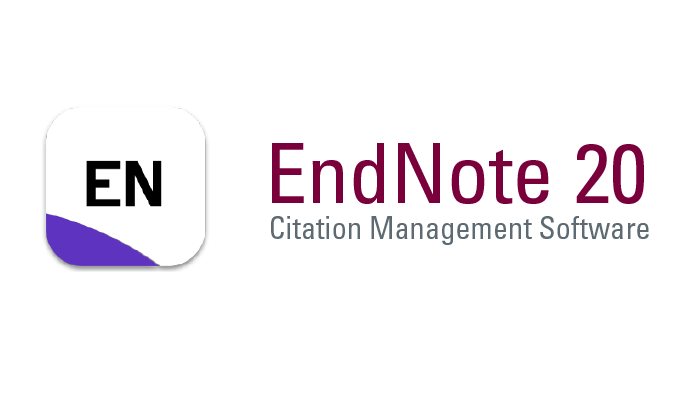PENGUATAN PENDIDIKAN DAYAH DI ERA DIGITAL
DOI:
https://doi.org/10.47887/amd.v5i1.154Keywords:
Digitalization, Dayah, Traditional Education, Educational Technology, Online Learning, Management Efficiency, Information AccessAbstract
This study aims to analyze the implementation of digitalization at Dayah Darul Muarif and its impact on the quality of education. The digitalization at this dayah includes the use of educational software, online learning, and the integration of information technology in teaching and administrative management. The results of the study show that digitalization brings various positive impacts, such as increased access to information, more interactive learning, and management efficiency. However, the implementation of digitalization also faces several challenges, including infrastructure limitations, human resource readiness, and high implementation costs. With continuous support from various parties and appropriate strategies, this dayah can continue to optimize digital technology to improve the quality of its education. This study provides important insights for other traditional educational institutions that wish to adopt digital technology in their education systems.
References
Abduh, M., Ab, F., & Lestari, I. (2022). Implementation of Online Teaching-Learning Policy at Senior High School During the Pandemic Covid-19 in Banda Aceh. 2nd International Conference on Social Science, Political Science, and Humanities (ICoSPOLHUM 2021), 227–231.
Day, C., Sammons, P., & Stobart, G. (2007). Teachers matter: Connecting work, lives and effectiveness. McGraw-Hill Education (UK).
Gusteti, M. U., Jamna, J., & Marsidin, S. (2023). Pemikiran digitalisme dan implikasinya pada guru penggerak di era metaverse. Jurnal Basicedu, 7(1), 317–325.
Hakeu, F., Pakaya, I. I., Djahuno, R., Zakarina, U., & Tangkudung, M. (2023). Workshop Media Pembelajaran Digital Bagi Guru Dengan Teknologi AI (Artificial Intelligence). Mohuyula: Jurnal Pengabdian Kepada Masyarakat, 2(2), 1–14.
Hattarina, S., Saila, N., Faradilla, A., Putri, D. R., & Putri, R. R. G. A. (2022). Implementasi Kurikulum Medeka Belajar Di Lembaga Pendidikan. Seminar Nasional Sosial, Sains, Pendidikan, Humaniora (SENASSDRA), 1(1), 181–192.
Hermawansyah, H. (2021). Manajemen lembaga pendidikan sekolah berbasis digitalisasi di era COVID-19. Fitrah: Jurnal Studi Pendidikan, 12(1), 27–46.
Idrus, L. (2020). PESANTREN, KYAI DAN TAREKAT (Potret Sejarah Pendidikan Islam di Indonesia). Al-Din: Jurnal Dakwah Dan Sosial Keagamaan, 6(2).
Jayanthi, R., & Dinaseviani, A. (2022). Kesenjangan digital dan solusi yang diterapkan di Indonesia selama pandemi COVID-19. JURNAL IPTEKKOM Jurnal Ilmu Pengetahuan & Teknologi Informasi, 24(2), 187–200.
Khasanah, N., Hamzani, A. I., & Aravik, H. (2022). Pesantren Salafiyah dalam Lintasan Sejarah. Penerbit NEM.
Nasrullah, N., & Rahman, A. W. (2023). Digitalisasi pembelajaran di sekolah. Journal on Education, 5(2), 5238–5246.
Niam, M. F., Rumahlewang, E., Umiyati, H., Dewi, N. P. S., Atiningsih, S., Haryati, T., Magfiroh, I. S., Anggraini, R. I., Mamengko, R. P., & Fathin, S. (2024). Metode penelitian kualitatif.
NUR SALWA, S. N. U. R. (2021). MANAJEMEN PEMBELAJARAN ONLINE PADA MASA PANDEMIK COVID-19 MADRASAH ALIYAH NEGERI (MAN) PALOPO. INSTITUT AGAMA ISLAM NEGERI PALOPO.
Purba, A., & Saragih, A. (2023). Peran teknologi dalam transformasi pendidikan bahasa Indonesia di era digital. All Fields of Science Journal Liaison Academia and Sosiety, 3(3), 43–52.
Qomar, M. (2002). Pesantren: dari transformasi metodologi menuju demokratisasi institusi. Erlangga.
Rifa’i, Y. (2023). Analisis Metodologi Penelitian Kulitatif dalam Pengumpulan Data di Penelitian Ilmiah pada Penyusunan Mini Riset. Cendekia Inovatif Dan Berbudaya, 1(1), 31–37.
Setiawan, Z., Pustikayasa, I. M., Jayanegara, I. N., Setiawan, I. N. A. F., Putra, I. N. A. S., Yasa, I. W. A. P., Asry, W., Arsana, I. N. A., Chaniago, G. G., & Wibowo, S. E. (2023). PENDIDIKAN MULTIMEDIA: Konsep dan Aplikasi pada era revolusi industri 4.0 menuju society 5.0. PT. Sonpedia Publishing Indonesia.
Sugiyono. (2019). Metode Penelitian Kuantitatif, Kualitatif, Dan R&D. Alfabeta.
Syamsuar, S., & Reflianto, R. (2019). Pendidikan dan tantangan pembelajaran berbasis teknologi informasi di era revolusi industri 4.0. E-Tech: Jurnal Ilmiah Teknologi Pendidikan, 6(2).
Uluwiyah, T., Kholis, N., & Iskarim, M. (2024). Analisis Penggunaan Platform Merdeka Mengajar oleh Guru PAI & BP dalam Akselerasi Implementasi Kurikulum Merdeka. Jurnal Basicedu, 8(1), 659–666.
Wulandari, E., & Mandasari, Y. P. (2021). WhatsApp Group Sebagai Media Pembelajaran Bahasa Inggris Daring di Masa Pandemi: Sebuah Kajian Teori. KoPeN: Konferensi Pendidikan Nasional, 3(1), 175–189.
Downloads
Published
How to Cite
Issue
Section
License
Copyright (c) 2024 Nazaruddin Nazaruddin, Ahmad Yani, Chalirafi, Alfi Khaira, Syamsuddin

This work is licensed under a Creative Commons Attribution-ShareAlike 4.0 International License.
Authors retain copyright and grant the journal right of first publication and this work is licensed under a Creative Commons Attribution-ShareAlike 4.0 that allows others to share the work with an acknowledgement of the works authorship and initial publication in this journal.
All articles in this journal may be disseminated by listing valid sources and the title of the article should not be omitted. The content of the article is liable to the author.
Authors are able to enter into separate, additional contractual arrangements for the non-exclusive distribution of the journal's published version of the work (e.g., post it to an institutional repository or publish it in a book), with an acknowledgment of its initial publication in this journal.
Authors are permitted and encouraged to post their work online (e.g., in institutional repositories or on their website) prior to and during the submission process, as it can lead to productive exchanges, as well as earlier and greater citation of published work.
In the dissemination of articles by the author must declare the Al-Madaris Jurnal Pendidikan dan Studi Keislaman as the first party to publish the article.














